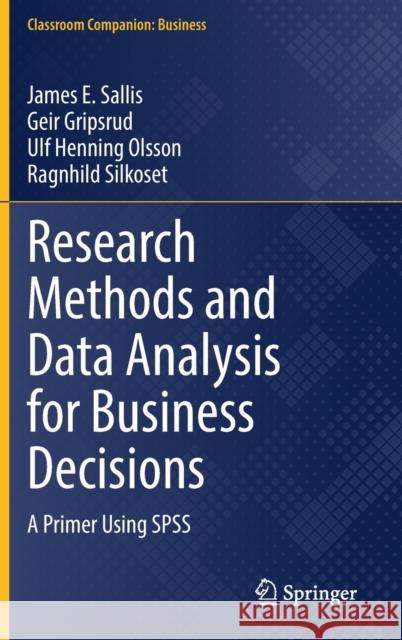Research Methods and Data Analysis for Business Decisions: A Primer Using SPSS » książka
topmenu
Research Methods and Data Analysis for Business Decisions: A Primer Using SPSS
ISBN-13: 9783030844202 / Angielski / Twarda / 2021 / 190 str.
Research Methods and Data Analysis for Business Decisions: A Primer Using SPSS
ISBN-13: 9783030844202 / Angielski / Twarda / 2021 / 190 str.
cena 442,79
(netto: 421,70 VAT: 5%)
Najniższa cena z 30 dni: 385,52
(netto: 421,70 VAT: 5%)
Najniższa cena z 30 dni: 385,52
Termin realizacji zamówienia:
ok. 16-18 dni roboczych.
ok. 16-18 dni roboczych.
Darmowa dostawa!
Kategorie:
Kategorie BISAC:
Wydawca:
Springer
Seria wydawnicza:
Język:
Angielski
ISBN-13:
9783030844202
Rok wydania:
2021
Wydanie:
2021
Numer serii:
000962575
Ilość stron:
190
Waga:
0.55 kg
Wymiary:
23.39 x 15.6 x 1.6
Oprawa:
Twarda
Wolumenów:
01
Dodatkowe informacje:
Wydanie ilustrowane











